Farmer John Writes: But, I’m Farming
Harvest Week 6, August 2nd – 7th, 2021
Last week’s edition of Farm News, The Anvil, The Tulip Tree and Grandma Moses, was about decades of delay in the realization of the installation of an anvil, the bloom of a tulip tree and Grandma Moses’ fame as a painter.
Impulses are interesting. Which ones manifest as results? How do they manifest as results? When do they manifest as results?
Shareholder Michael Rabiger posted this to the Farm News blog recently:
“Dear Farmer John, I was Taggart Siegel’s documentary teacher in Chicago, back in the late 1970s. His first film was heartbreaking: it was about you having to endure your family farm being sold during that time of farms all over the midwest going broke. What a great pleasure today to be dining on your excellent produce and reading your meditations on the challenges a successful and ethical farmer faces, week by week. A story with a happy ending!”
Thank you, Michael, for reminding me of this film.
The name of the film that Taggart made with guidance from Michael Rabiger was Bitter Harvest. It is not available online. However, an excerpt from that early documentary is available in The Real Dirt on Farmer John from 19:50 to 23:29. I encourage you to watch this excerpt (if not the whole film).
In The Real Dirt on Farmer John (26:15) I declare “I will never farm again.”
From last week’s newsletter, in the case of the anvil, the tulip tree and Grandma Moses, you can identify an impulse, an impulse that wanted to unfold into the future, and that did unfold into the future.
My mother declared at the age of three that she planned to become a teacher. She taught for 35 years.
At age 30, I declared I would never farm again.
But, I’m farming.
What caused my mother, upon declaring as a 3-year-old that teaching was her future, that she would go on to teach for 35 years, whereas I declared I would never farm again, and now I farm?
What causes things to come into being? Fate? Circumstances? Destiny? Will?
The farm went through a death.
How is it that you are eating vegetables and herbs from a farm that had perished, that was reduced to nearly nothing–a shell?
There was a death event, a complete termination/destruction of the farming way of life.
Something died.
Watch The Ridgepoles Go from The Real Dirt on Farmer John.
From The Way We Whir, a story I wrote about the loss of the farm:
“The lawsuits and taxes, lost face and empty barns, foreclosures and frozen silence of the farm, the ominous mailbox and ringing of the phone – a great psychic wound opened up and I spilled through it. I turned off the phone and stuffed my mail unopened into huge plastic bags. I pulled the shades and lay in gray still non-time for two non-years. I only came out for court hearings and to turn birthday gifts into cash. And once I went to the Madison University Library to study signs of testicular cancer.
The uproars, digging for seed, gasoline fires and hayrides in the night, walking the corn, the mud smearing, the fender riders, burrs and sticktites, barns full of music and cultures from all over, four tractors stirring a field, tailgate picnics, a lamp in the sow pasture, aromas from the great black and white kitchen, oil salesmen promising eternal engine life, food sculptures and poetry readings, big pig litters under a heat lamp, whirlpools and lost earrings, sows clacking their teeth, scratched floors and broken hampers and stained carpets, croquet matches, sow riding, frozen waterers – they were all with me and not with me in non-time.”
I knew I would never farm again.
I was relieved I would never farm again.
However, farming, like the rest of life, is a continual process of dying and becoming, of growth and decay, of building up and tearing down.
This dead farm somehow came back to life in a new way—an ancient story that crosses many cultural boundaries and epochs, a story of redemption.
From The Way We Whir:
“During the return of time, I went back into time, back to the residue of the Midwest Coast, of farming, to the fallout laying in vast heaps, the artifacts and trash that filled cavernous barns and gentle attics. For two years, I edited the materials of my past. I sorted through buttons and bones, marble slabs and ceramic dogs, masks and U/bolts. Boots, bicycles and brushes had abandoned to the Peterson farm, like the half- eaten meals immortalized in the volcanic ash of Pompei. There were skis and paintings, mangled model railroad track, barely portable shrines of the universe and of teeth, and a six-foot Mr. Peanut. Skulls and exotic dead flowers, manneguins, cabinets full of blenders and scummy see-through dishes, aerial salutes, sweet stacks of valentines, a 3-D near-life size exhibit of the circulatory system –all day, month after month I disengorged.
There were dozens of chairs, scores of baskets, enough lamps to furnish an inn. There were mountains of barbed wire that used to keep the cows in, tons of assorted hardware – bolts, corks nuts, bungs, burrs and plugs – pipe by the thousands of feet, great piles of steel channel, hundreds of fence posts, tools to keep a small village intact. There were racks and racks of rough cut lumber and ornate trim boards, stacks of rotting windows and doors and shutters, boxes of Victorian bric-a-brac. I sifted through hundreds of test tubes and beakers, beautiful green spirals of Chinese mosquito repellent, styrofoam molds, subpoenas and foreclosure notices. I lugged logs and drain pipe, cut old plows into scrap or sculpture, sorted stacks of angora sweaters from I didn’t know who. I answered letters from ten years before.
The past went into boxes with big labels and onto deep shelves and wide racks that went on forever. I created departments and zones, atmospheres and centers.
As the barns and sheds emptied out I could see the cracks in the foundations, the broken floors, the massive support beams eaten clear through by rats. I could see the sky through holes in the roofs. Windows panes balanced in their frames by one remaining nail or the last gob of putty. I caulked and cemented, patched and glazed. I bolstered and jackposted, straightened and plumbed, painted and roofed. I took building after building into the return of time, back in time, on in time.”
How did this happen?
The farm died. A (subterranean?) process ensued. There was a resurrection. The death of the farm was needed for the farm to arise in a new way.
Watch Revolution on the Farm from The Real Dirt on Farmer John.
Here is a quote from Rudolf Steiner that I encountered yesterday. Perhaps it contains a clue about the resurrection of the farm:
“There are many subconscious experiences in the human soul. There are depths of the human soul life that do not become concepts, mental pictures, acts of volition, at least not conscious ones, but only in the character of the human soul life. There is a subconscious soul life; and everything is there that can be in the conscious soul life. However, emotions, passions, sympathies and antipathies which we feel in the usual life consciously can also be in the subconscious regions, they are not perceived in it, but have an effect in the soul like a natural force, — save that they are mental and not physical. There is a whole region of the subconscious soul life.
The human being asserts, believes, and means many things not because he is completely aware of their premises; but he believes and means them from the subconscious soul life because unconscious emotions, inclinations urge him.”
~ Rudolf Steiner, Berlin, 6 November 1913
I can cite outer reasons/circumstances for the resurrection of the farm. I will not cite these reasons; they would be pale explanations that mask the forces of time, destiny and the unconscious. I will simply hold up this story of you eating today from your once-dead farm as an invitation to review the events, forces, and mysteries that have unfolded in your own life to have you be where you are today.
Sweet Corn—One Variety is a Little Disappointing
Some of the ears of early sweet corn did not pollinate properly; the kernels are uneven here and there. I’m not sure of the cause. We irrigated it generously at tasseling and silking time, but still some kernels didn’t form. It’s delicious, though. Please don’t doubt the deliciousness of your corn, based on an uneven distribution of the kernels.
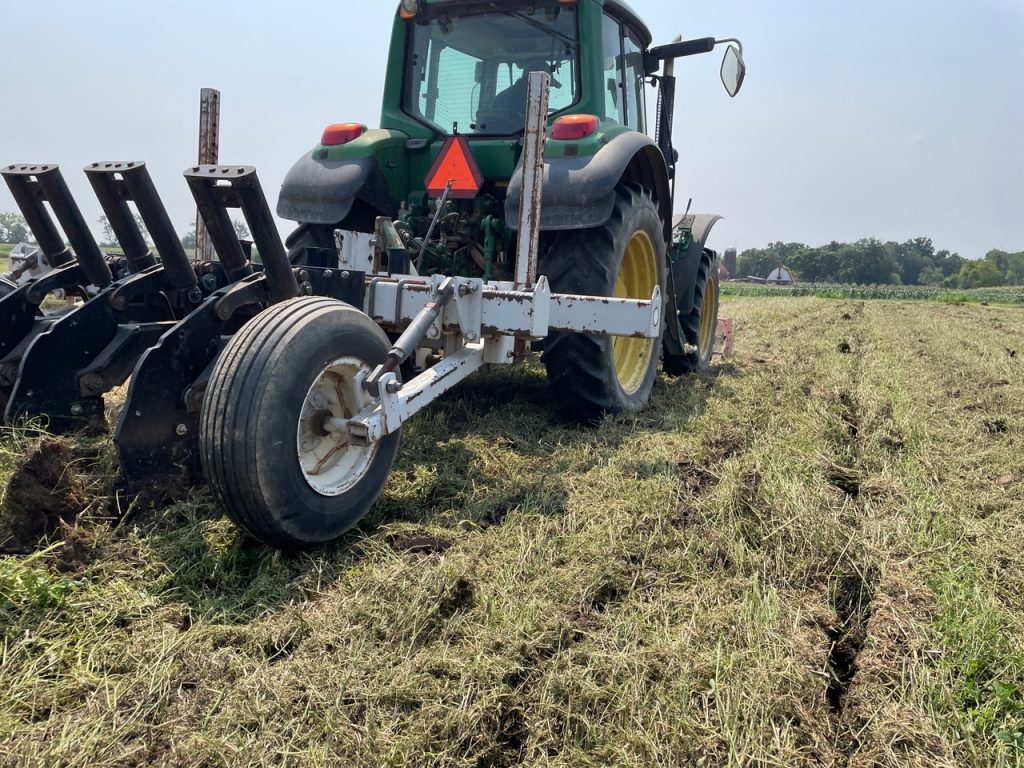
next year’s sweet corn ground being prepared this year, a process of destruction in preparation for life
Watermelons
The vines of the watermelons died back prematurely, plus the crows feasted on about 1/4 of the crop, so the watermelon crop is sparse this year. (To be more accurate about the crows, they don’t actually feast on the watermelons; they just poke a hole into the shell, suck out a few juices, and go on the next melon. They sample the watermelons.) The watermelons are a bit less sweet than usual, due to the vines dying prematurely—not sure you will notice, as they are still quite tasty. We have a lot of other types of melons coming soon (which the crows seem to have no interest in.)
Tomatoes
Snippets
Years ago, I often included an Overheard section in Farm News, in which I shared snippets of the conversations of others I overheard and sometimes the conversations I was part of.
Overheard
Person #1) Do you know how I know you are an atheist?
Person #2) How?
Person #1) Because you don’t have unconditional love for me. If you weren’t an atheist, you’d love me unconditionally.
With love,
Farmer John



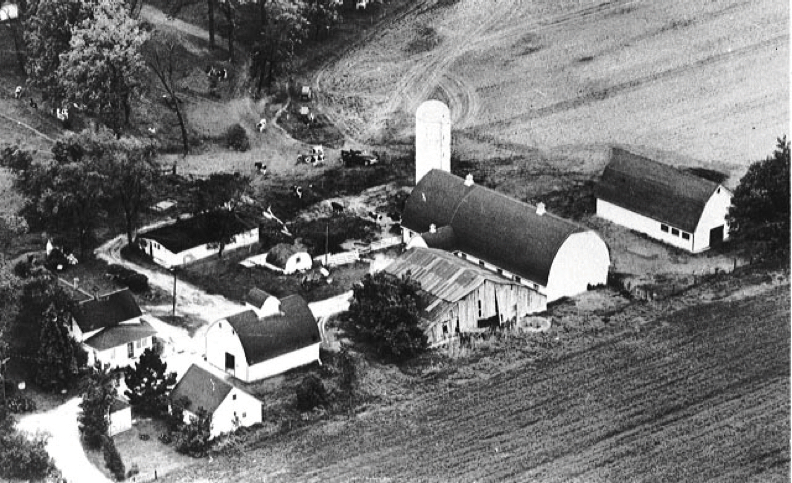
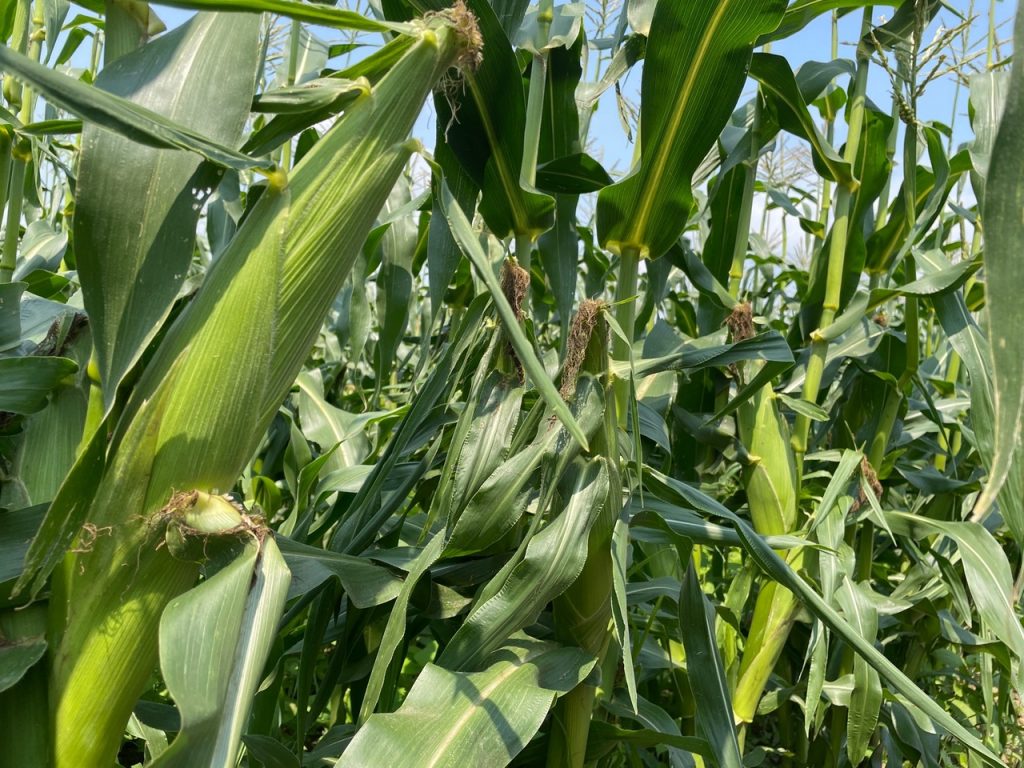
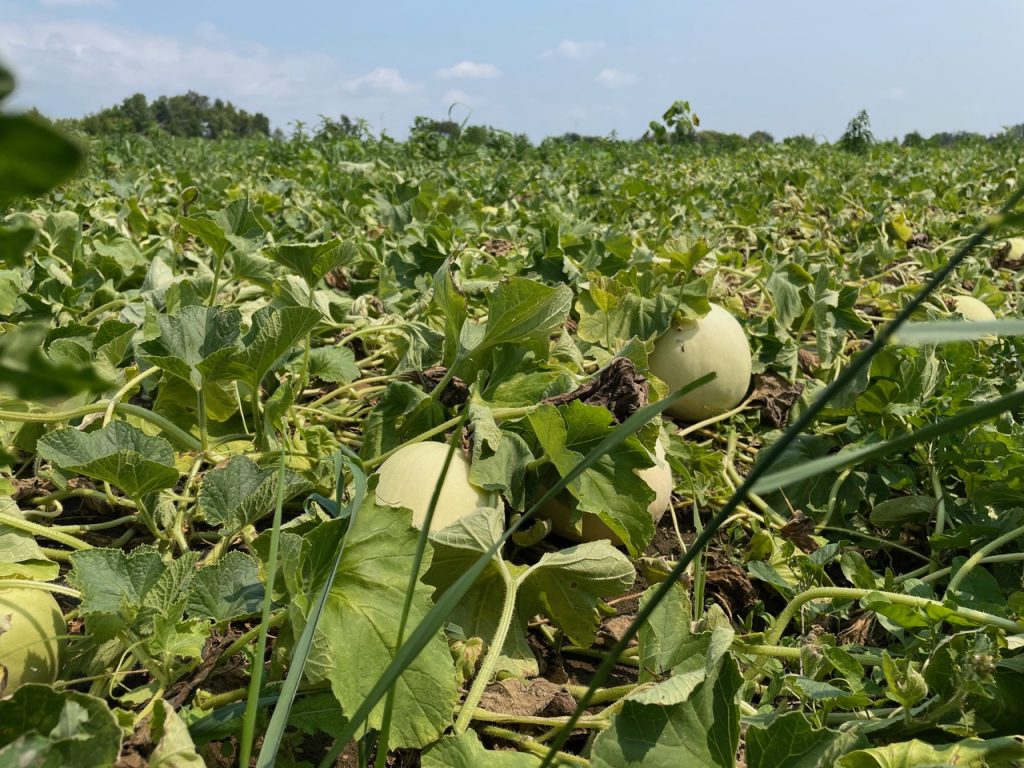
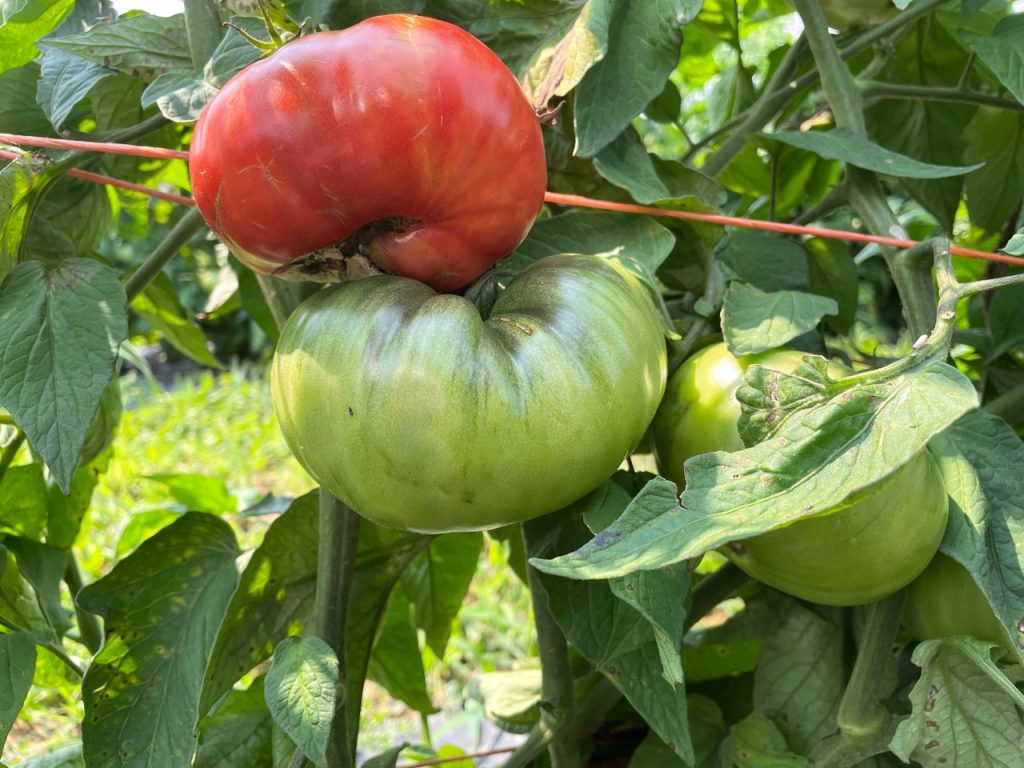

Last night for dinner, our family dove in to the first of your sweet corn for the season. Everyone bypassed the chicken and the squash casserole and went straight for the corn. There was an unusual silence (except for the munching noises). It was delicious! The kernels on all our cobs were lined up to perfection, but even if we had gotten the uneven ones, no matter. Happy summer!
…pleasurably read your digestible notes which are thoughtfully savored for today and tomorrows… gratefully, victoria
ahh, such sweetness